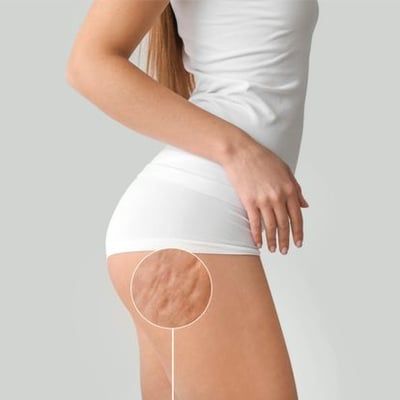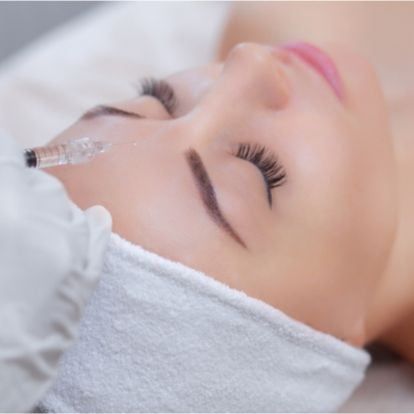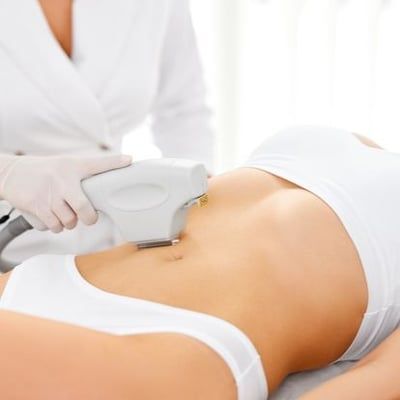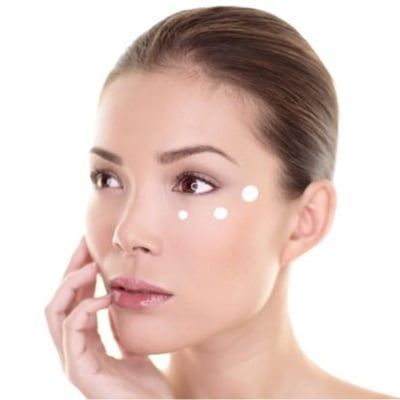Dermal Fillers
OVERVIEW:
Used to smooth out wrinkles, plump up your skin, and give your face a more youthful appearance, dermal fillers are a popular cosmetic procedure. In 2020 alone, there were over 3.4 million dermal filler injections administered in the United States, making it the second most commonly requested cosmetic procedure.
Minimally invasive, dermal, or soft tissue fillers are placed under the skin, adding volume and providing support to different areas of your face, including your lips, jawline, and cheeks.
Whether you're looking to decrease the appearance of fine lines or rejuvenate the skin on the tops of your hands, a board-certified plastic surgeon can help determine which dermal filler is suitable for you.

What are Dermal Fillers?
The second most popular cosmetic procedure in the United States, dermal fillers, are injectable treatments used to reduce the signs of aging. You may also hear your plastic surgeon referring to them as facial fillers, soft tissue fillers, wrinkle fillers, or lip fillers.
Dermal fillers are minimally-invasive injections composed of soft, gel-like substances. These injections are carefully placed just under the skin and work to:
- Replace lost volume or
- Providing support to the tissue matrix under your skin
What are the Uses of Dermal Fillers?
Dermal filler may be used by your board-certified plastic surgeon to commonly address the following signs of aging:
- Loss of volume in the lips
- Fine lines around your nose and mouth
- Thinning of skin/loss of fullness on the tops of your hands
In addition, dermal fillers can also be used to reduce scarring and contour deformities of the face.
Who can Use Dermal Fillers
Your plastic surgeon may recommend the use of soft tissue fillers if you are looking for a minimally invasive cosmetic procedure to rejuvenate your skin and treat the first signs of aging.
Dermal fillers are temporary treatments, which is why it's important to remember that multiple sessions are required for upkeep and in order to maintain long-term results.
Your plastic surgeon will help determine if you (and your overall health) are a good candidate for dermal fillers. While most healthy individuals can use facial fillers, the following cannot:
- Pregnant or people who breastfeed
- People with allergies to filler ingredients
- Those on medications that may interact with the contents of the filler
- People with a history of skin cancer or severe acne
The FDA recommends fillers for use by persons 22 years and older
What are the Various Types of Dermal Fillers?
A popular choice for people who want to improve the appearance of their face and hands, dermal fillers come in several different types:
- Hyaluronic Acid, or HA, is a naturally-occurring substance in the human body
- Calcium hydroxylapatite, a naturally-occurring mineral found in bone
- Poly-L-lactic acid (PLLA), a synthetic substance that is also biodegradable
Most fillers are temporary and can be absorbed by the body, however, polymethyl methacrylate (PMMA) beads are the only FDA-approved dermal filler that is non-absorbable and permanent in nature.
While you may come across needle-free devices like hyaluron pens for injection of hyaluronic acid (HA) for use cosmetically, it's important to note that there's currently no non-injectable filler that's approved by the FDA.
Picking a Dermal Filler That's Right for You
Dermal or soft tissue fillers are commonly used by plastic surgeons to reduce the appearance of wrinkles and lines, fill in scars and depressions, as well as add volume to your lips. If you experience any of these cosmetic issues, dermal fillers may be suitable for you.
A board-certified plastic surgeon with experience in injectables can help recommend a filler treatment that's right for you based on your:
- Overall health
- Current cosmetic goals
- Expectation of results
Another important factor to consider when picking a dermal filler is your budget. Dermal fillers can range from a few hundred dollars to several thousand dollars, so it's important to find one that fits your budget.
How Dermal Fillers Work
While sitting down for your first dermal filler appointment can feel intimidating, the process is anything but—filler treatments are minimally-invasive and take no more than 15 to 30 minutes, depending on your overall areas of the target.
Your plastic surgeon will begin by cleaning the skin and administering either ice, anesthesia, or a numbing agent to the area. It's quite common for one session to target multiple areas in order to achieve a natural-looking result.
Side Effects of Dermal Fillers
While dermal fillers are generally safe when performed by a board-certified plastic surgeon. However, some patients can experience the following side effects following a soft tissue filler appointment:
- Swelling
- Bruising, and
- Redness
These minor side effects are temporary and subside over time. Dermal fillers can be a fantastic, minimally-invasive way to achieve a more youthful appearance. If you're looking to rejuvenate your skin with dermal fillers, consult with a board-certified plastic surgeon to ensure you receive the best possible care.
















